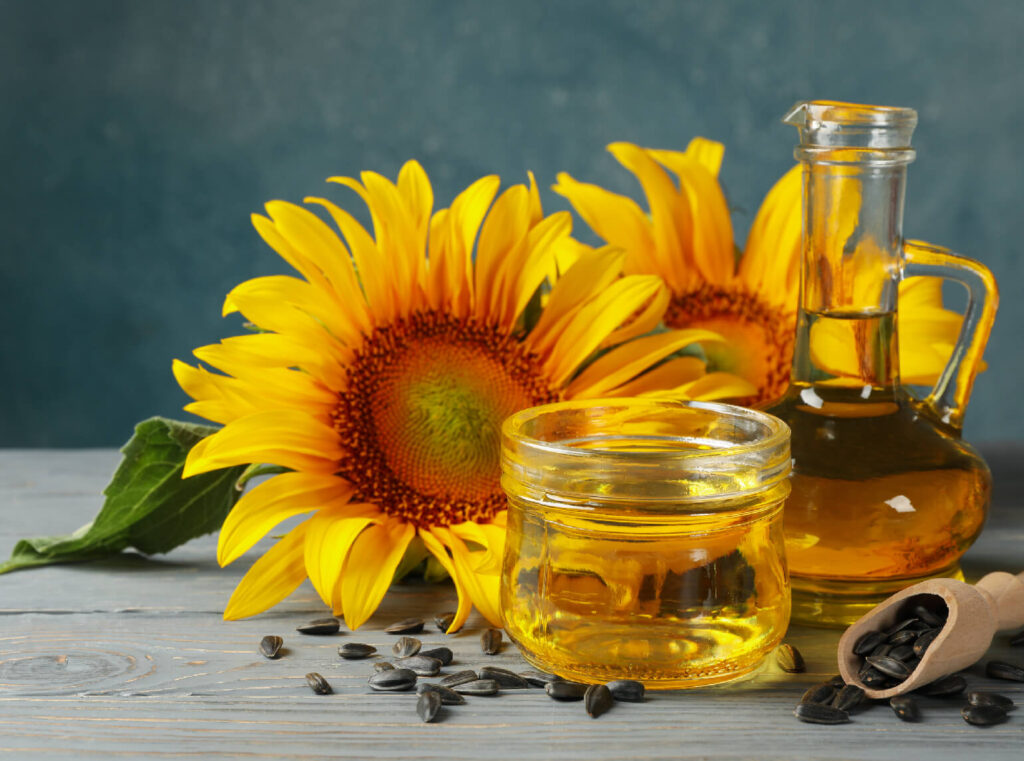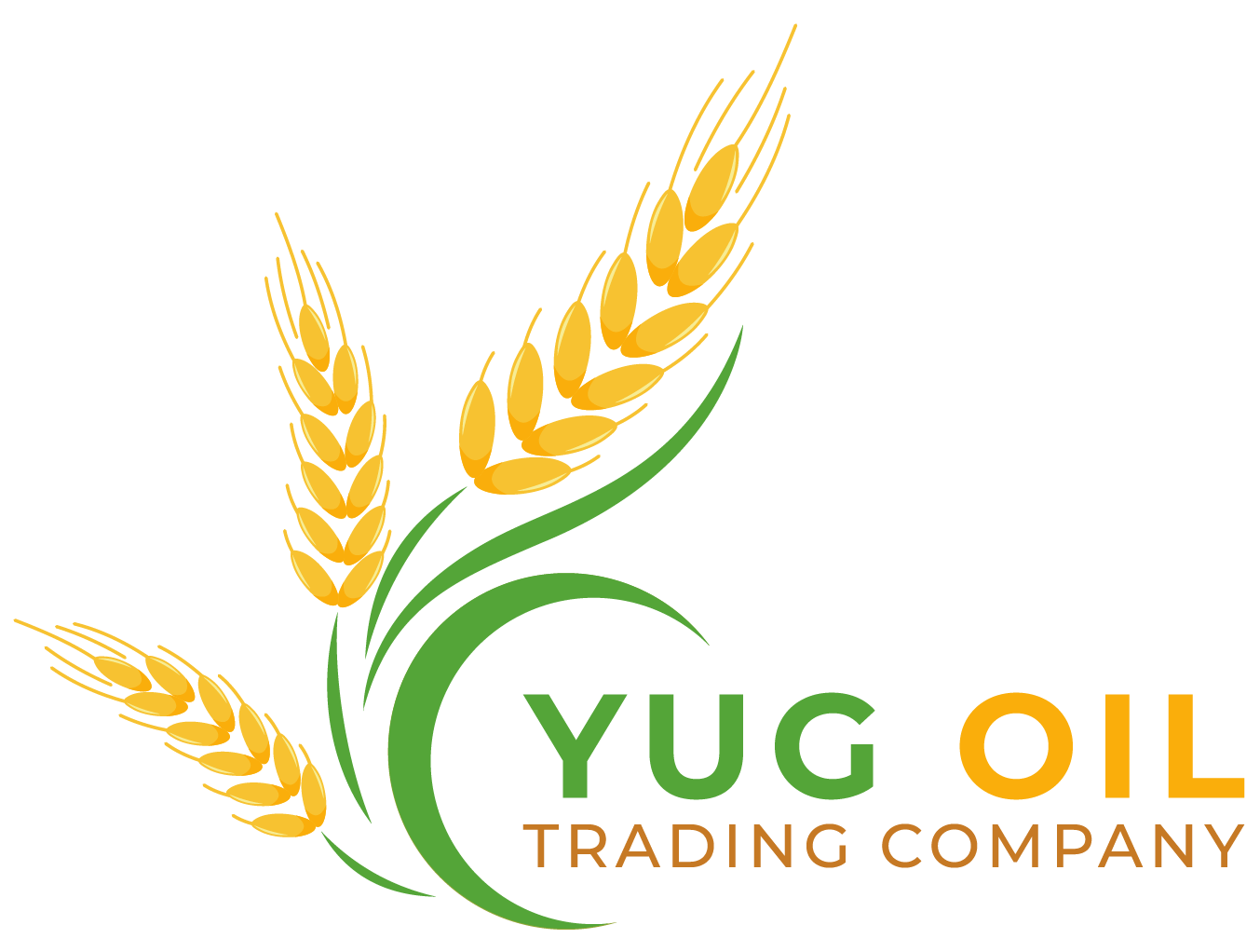
Sunflower Oil
Sunflower oil is a type of vegetable oil that is extracted from the seeds of the sunflower plant (Helianthus annuus). It is commonly used as a cooking oil and for producing margarine. Sunflower oil is a source of monounsaturated and polyunsaturated fats, specifically oleic and linoleic acids, which are known to be beneficial for heart health.
High Oleic Sunflower Oil
High oleic sunflower oil is considered to be the healthiest type of sunflower oil available because oleic acid constitutes 80% of its makeup. Linoleic acid and saturated fats make up the rest of the 20% in equal proportions.
While it is a healthy decision to swap your sunflower oils for a high oleic version, there are other properties of high oleic sunflower oil that make it a favorite among food manufacturers and processors, too. Besides the fact that it is healthier, high oleic acid also has a more neutral taste that allows the true flavors of the food to shine through.
Mid-Oleic Sunflower Oil
An oil that strikes a balance between the oleic and linoleic acid content – mid oleic sunflower oil – is a healthy option that gives you both the essential fatty acids in your diet. Considered to be the standard sunflower oil, it is the most common type available in the world, giving health benefits at a reasonable price point, similar to that of other seed oils.
The composition of mid oleic sunflower oil is as follows: 65% oleic acid, 25% linoleic acid, and approximately 10% saturated fats. While it provides proper nutrition at affordable prices to the masses, it is also the type of oil that is used by snack manufacturers like those of potato chips and crisps, as it is affordable and yet will not go rancid in storage without hydrogenation.
Linoleic Sunflower Oil
Linoleic sunflower oil, as the term suggests, is high in linoleic fatty acid and low in oleic acid. While linoleic acid is an essential part of the human diet, too much of it can be harmful. Consequently, linoleic sunflower oil is considered the least healthy option of the three, and its production is now limited because it is being chosen less and less by consumers. Linoleic sunflower oil is still the major ingredient in making margarine, salad dressings, and shortening, as all these are consumed in quantities that are too less to have any distressing effects.
Linoleic sunflower oil is 70% linoleic acid, 20% oleic acid, and only 10% other saturated fats. The high linoleic content is considered bad for consumption as it might actually have the opposite effect good sunflower oil, i.e., it will worsen a person’s heart health and cholesterol levels.
